Art World
5 Works to Get Excited About at This Year’s 1:54 Contemporary African Art Fair in London
The fair showcases both emerging and established artists, and has plenty to recommend it.
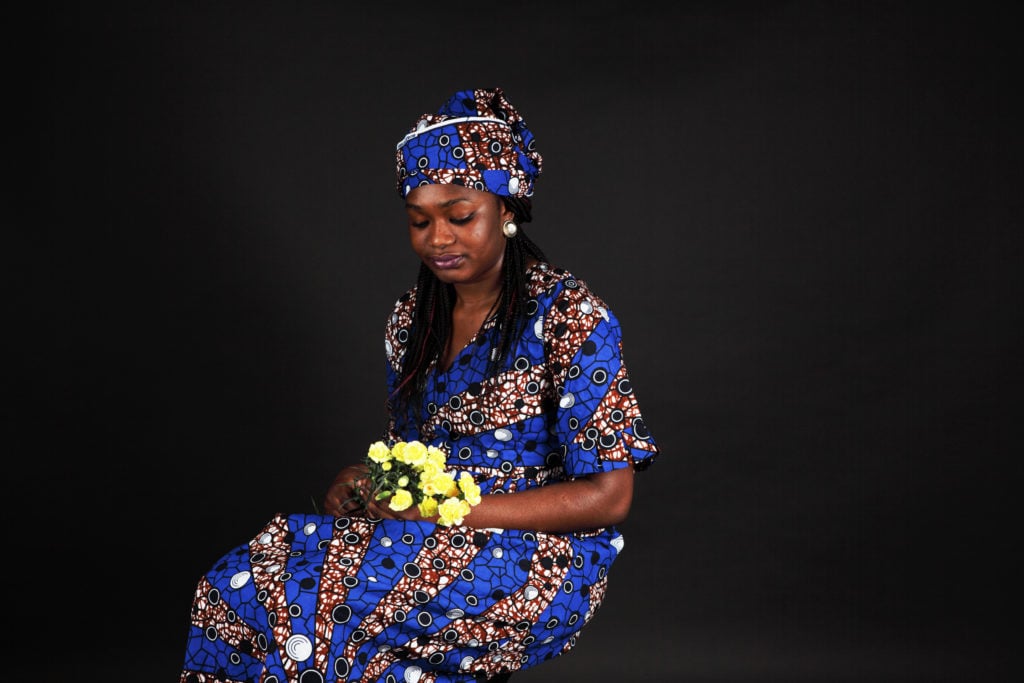
The fair showcases both emerging and established artists, and has plenty to recommend it.

Caroline Elbaor

The UK iteration of the 1:54 Contemporary African Art Fair opened to the public yesterday at London’s Somerset House, bringing together 42 galleries from across Europe, Africa, the Middle East, and North America to show the work of more than 130 artists, with eight special projects to top it off. Here, we’ve broken out a few of the most interesting things on view at the fifth edition of the fair. Don’t miss them!
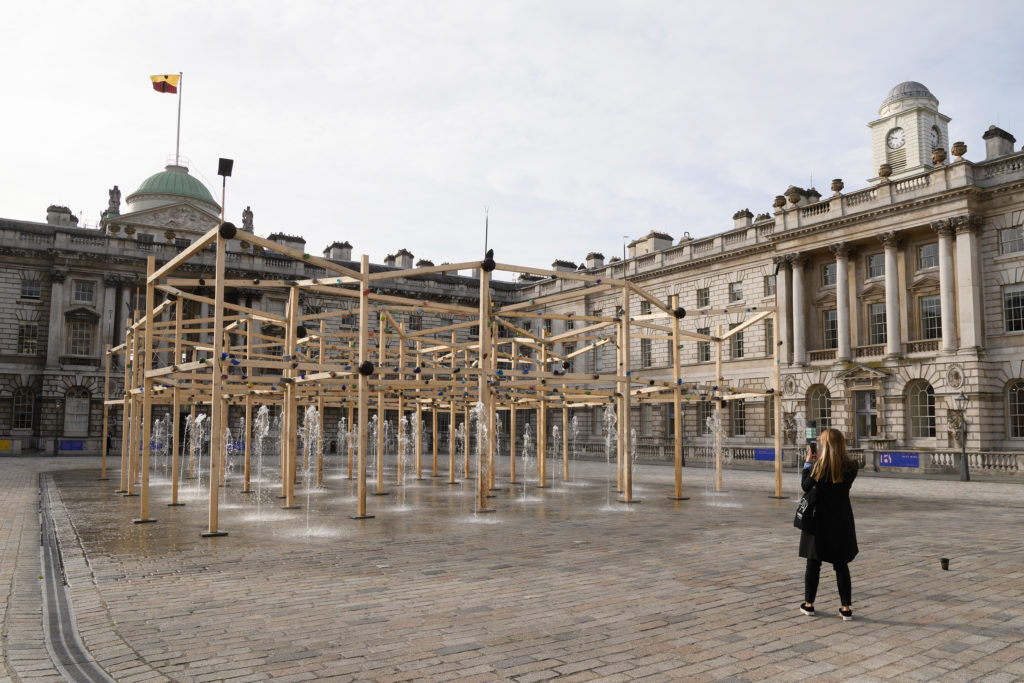
Pascale Marthine, Summer Surprise (2017). Image Courtesy Leon Neal/Getty Images.
Cameroonian artist Pascale Marthine Tayou—who has already achieved major recognition for his solo exhibition at the Serpentine Galleries in 2015—returns to London with a site-specific installation taking over the Fountain Court at Somerset House, greeting fair-goers as they enter the grounds. Summer Surprise is an imposing work referencing togunas, public structures found in Mali that, according to the fair, “facilitate debate and intellectual exchange.”
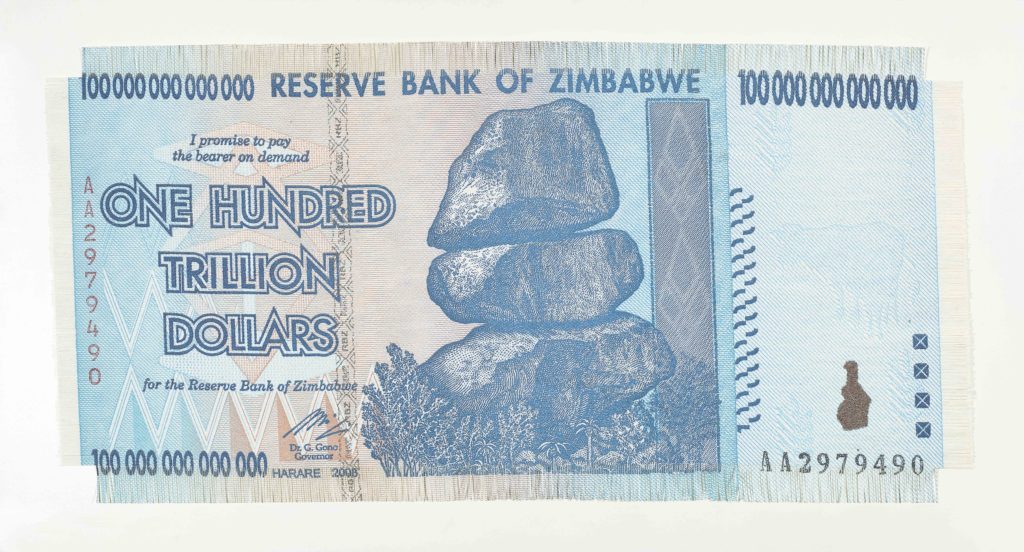
Dan Halter, Z$100-Trillion (2017). Image courtesy WHATIFTHEWORLD Gallery.
In his archival ink-jet prints, titled Z$100-Trillion and US$ 1, Zimbabwe-born artist Dan Halter hand-weaves prints to create large-scale images imitating US and Zimbabwean currencies. Comparison is one of the points of the work: The Zimbabwean note, marked at 100-trillion—and equaling the $1 value of the other bill—shows a bill used when inflation was at its height. Consequently, the depicted banknote appears to be in pristine condition, as it is rarely used because it is essentially worthless. The image of the US dollar, on the other hand, is well-worn from use, despite its $1 value.
Each work will set you back between £8,000-£8,500 ($10,450-$11,100), and comes in editions of three—though their hand-woven background renders them somewhat unique.
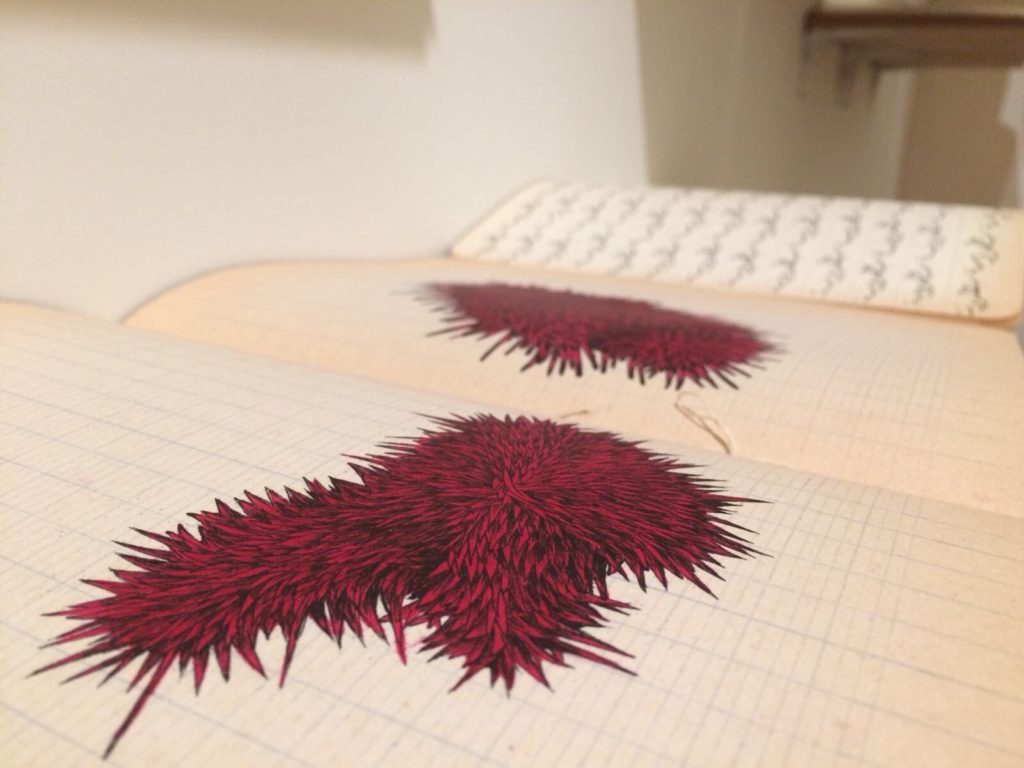
Aicha Snoussi, Bugs series (2017). Image Courtesy Agorgi Gallery.
In her presentation at Tunisia’s Agorgi Gallery, Paris-based Aicha Snoussi has mounted a wall installation of ink drawings sketched in found school copybooks, the delicate pages of which the artist compares to skin. Snoussi—who was originally trained as an engraver—typically draws large-scale, site-specific murals directly onto gallery and museum walls. She switches her tune here with fragile sketchbooks and visceral etchings of abstract shapes that suggest internal organs. The intention is to bring viewers back to their own schooldays, in which we learn about anatomy and the body, to create what the artist calls “an anti-encyclopedia encyclopedia.”
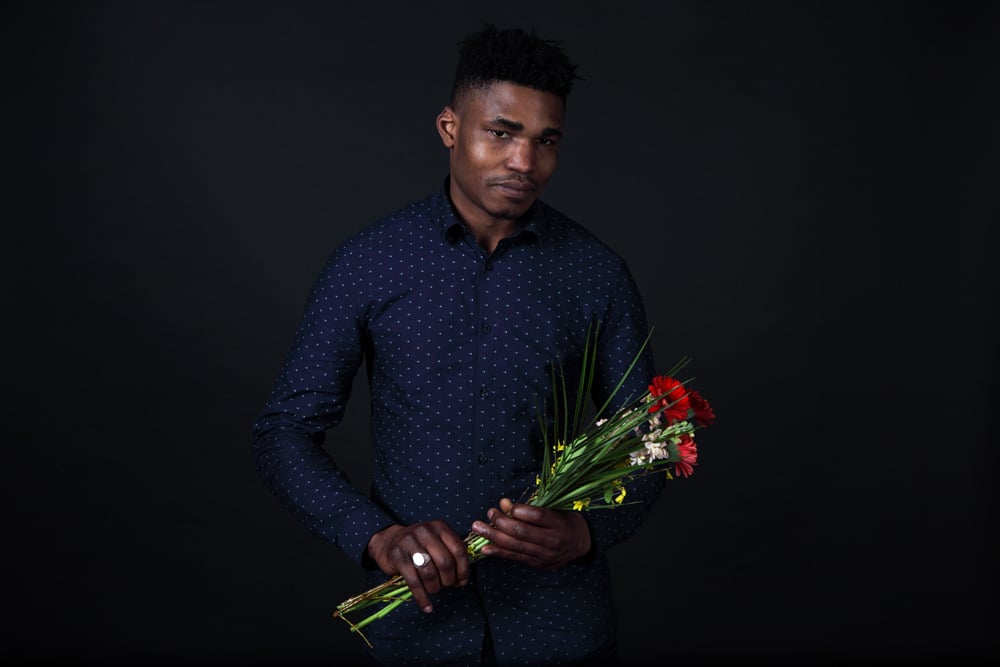
Halida Boughriet, BORDER #2 (2017). Courtesy the artist and Officine dell’Immagine.
In her ongoing photographic series, titled “Border,” French-Algerian artist Halide Boughriet produces portraits of refugees living in camps outside of Paris in an aim to give back a sense of individual identity to those who feel as if they have been stripped of one. The sitters are free to choose their position and props, giving them some agency over the persona they wish to embody or convey to the world. The portraits end up feeling both intimate and unnerving—and urgent in the contemporary climate.
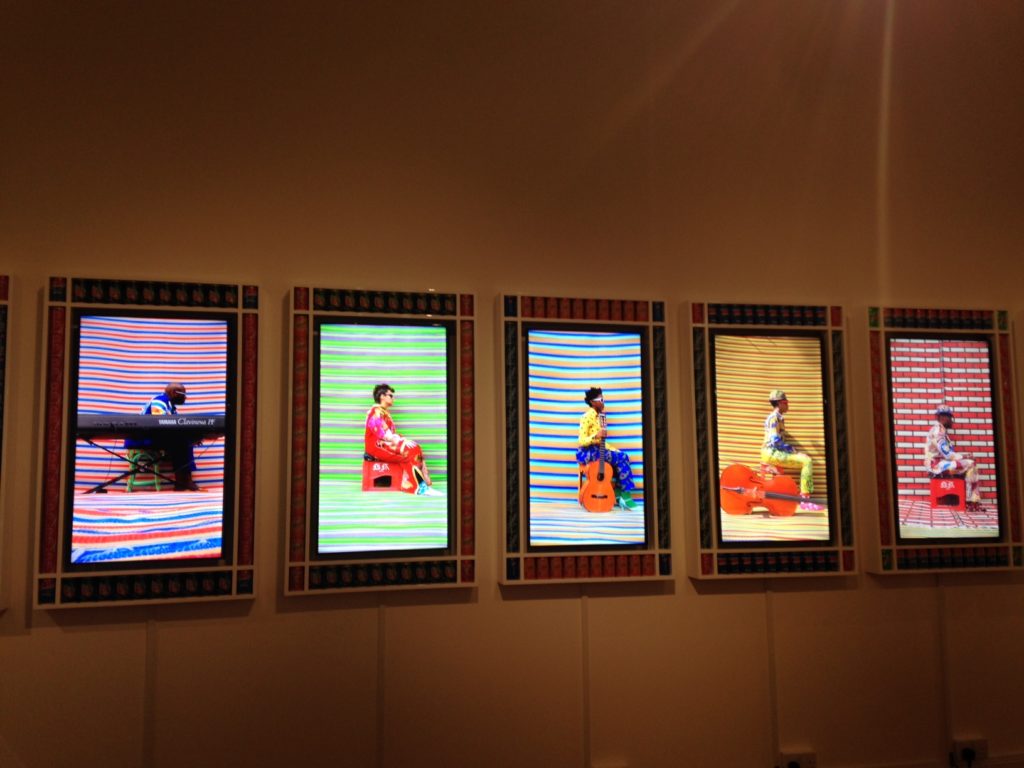
Hassan Hajjaj, My Rock Stars: Volume 2, (2017). Image Caroline Elbaor.
In what is his first UK outing in seven years, dubbed by the fair as his “homecoming exhibition,” celebrated British-Moroccan artist Hassan Hajjaj presents new and existing works in what amounts to a mini-retrospective of his oeuvre. Of particular note is the new work My Rock Stars: Volume 2, which is installed across nine screens, each depicting a different musician (all of whom are friends of Hajjaj) playing their instrument in their seemingly individual worlds. When their music is combined, the installation functions as a fully-immersive work that straddles both sound and video.